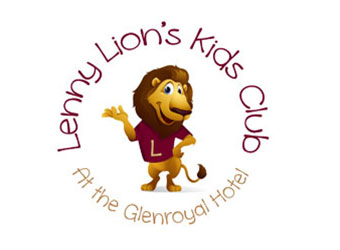Constipation In Children
Constipation is a relatively common and frustrating problem amongst Irish children and is something that if treated early, can reduce the risk of problems in later life. Constipation is generally considered a dietary issue, caused by either an insufficient fibre intake or dehydration. If your child has repeated difficulty passing a stool, it can make them anxious about using the bathroom, and that is when problems can occur. Some children begin to put off bowel movements as long as possible, others may use the toilet every day, but not take enough time to completely empty their bowel. Whatever your child’s issue may be, it is a good idea to chat openly about toilet practices, so that they will feel relaxed about using the toilet, along with ensuring a good high fibre diet.
How do I know if my child is constipated?
- If they find passing a stool difficult or painful.
- If they have infrequent bowel movements (this is usually considered less than three bowel movements a week).
- If the stools are hard, dry, unusually large and/or difficult to pass.
- If they have a feeling of incomplete emptying or fullness in the back passage.
- If they have small hard pellet like stools.
The three main factors we look at, regarding bowel health, include diet, fluid and exercise. We know constipation is caused by a diet that is low in fibre, but we must also be aware that some other common causes with children can be drinking too much milk (more than one ½ litre per day), not drinking enough water or waiting too long to go to the bathroom. Children often fight the urge to defecate if they do not like using the toilets in school or if they are playing and do not want to be distracted. Another issue may be that your child needs more regular activity.
Health Tips For Constipation In Children
- Dietary changes
Diet – including high fibre foods in your child’s diet; wholegrain bread, high fibre cereals, porridge, linseed, dried fruit, fruits, vegetables, popcorn etc. If your child is over 5 years of age you can also encourage nuts as a healthy after school snack.
Fluid – ensure an adequate daily intake of fluid. Encourage water or milk with meals and juice with breakfast. It may also help to try a glass of prune juice in the morning. Try to keep milk intake to less than one ½ litre per day.
- Behavioural changes
Exercise – increased motility helps the bowel motion to move along. Encourage daily activity of at least 30 minutes per day. Try walking to school or your local park in the afternoon or straight after school. Do not let the Irish weather stop your children from going outside, wrap them up in proper weather proof gear.
Bowel habit training – this actually involves encouraging your child to use the toilet at the same time each day e.g. after breakfast in the morning but make sure you allot enough time for this process, do not rush your child, make sure they feel relaxed. If they get into the routine of going to the toilet after breakfast in the morning it means they will be evacuated for the day and free to play later, uninterrupted.
- Medical Options
Medicine – should always be a last resort and only under medical supervision.
Some good high fibre foods to include in your weekly shopping basket.
- Breakfast cereals with more than 6g of fibre per 100g.
- Wholegrain breads, rolls and pitta pockets.
- Nuts.
- Beans.
- Seeds.
- Peanut butter.
- Popcorn.
- Fruits and vegetables.
- Dried fruit e.g. raisins, apricots, prunes.
- Fruit and vegetable juices.
Written by Aveen Bannon who is a consultant nutritionist to Kelkin.
Aveen Bannon says
My job as a nutritionist is to understand how the body works and deals with food. My work with Kelkin is to help teach the consumer and endeavour to help them make the right food choices for their health.
Aveen founded the Dublin nutrition centre where they providing comprehensive dietary and nutritional advice. She has also provided nutrition services to many health institutions including the Beacon Renal Unit, Beacon Cancer Support Centre, Rehab Care, ARC Cancer support Centre and Lois Aoibhinn Cancer support centre.
Aveen regularly gives talks and presentations to companies at health and wellbeing seminars and provides regular nutrition consultancy for food companies.
Aveen Bannon
BSc. (Hons) (Human Nutrition and Dietetics), H Dip DBSIT, M.I.N.D.I
Consultant Dietitian
BSc. (Hons) (Human Nutrition and Dietetics), H Dip DBSIT, M.I.N.D.I
Consultant Dietitian
Sponsored By Kelkin








